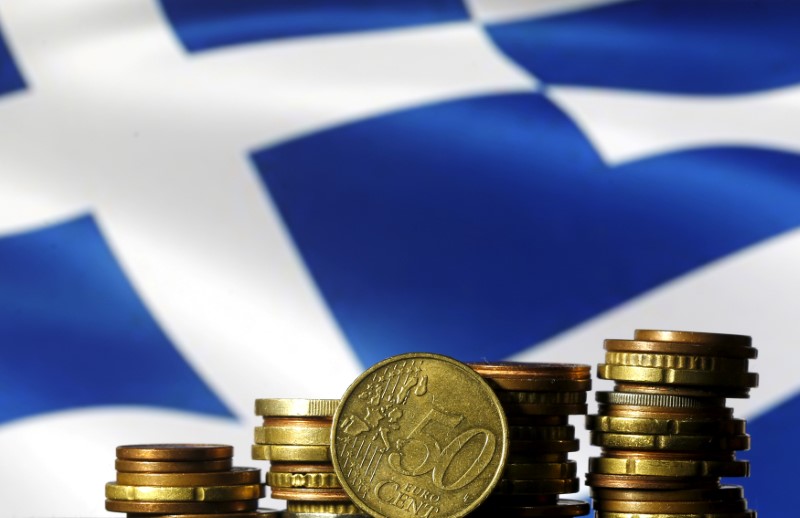 © Reuters. Euro coins are seen in front of a displayed Greece flag in this picture illustration
© Reuters. Euro coins are seen in front of a displayed Greece flag in this picture illustrationBy Jan Strupczewski
BRUSSELS (Reuters) – Euro zone policy-makers will seek last-minute backing this week from the International Monetary Fund for their debt-relief offer to Greece, to ensure it is credible with markets and draws investors back to Greece after it exits its bailout.
The talks are to take place on the sidelines of a meeting of in Canada of finance ministers and central bankers from the world’s top seven economies, the G7, in June, officials involved in the negotiations said. The bailout ends on Aug. 20.
“This thing has to be done now,” one senior official involved in the talks said. If no deal is agreed by next Monday, the official said, the IMF would most likely not take part in the bailout at all.
After three successive bailouts since Athens lost market access in 2010, euro zone governments are now Greece’s main creditors, with total loans of 230 billion euros ($268.20 billion) so far.
The IMF took part in the first two bailouts, but has refused to join in the third, which began in 2015. It says the euro zone must agree on how to make Greek debt, now at 179 percent of GDP, sustainable.
Euro zone finance ministers have argued they can only give such details towards the end of the three-year bailout. So the IMF has remained only an observer over the past three years.
Many euro zone countries, especially fiscal hawks like Germany, want the IMF on board to make sure private investors are ready to lend to Athens again and that Greece will not come back for more euro zone loans in a few years.
But at the same time Berlin does not like the IMF’s view that Greece needs substantial debt relief. Germany argues that if Greece keeps its primary surplus — its budget balance before debt costs — big enough for long enough, it might not be needed at all.
The IMF believes asking Greece to keep a high primary surplus for decades is unrealistic. It is also more cautious on Greek growth assumptions than the euro zone.
The IMF and the euro zone agree there should be no “haircut” – a reduction in the principal of the debt – but only an extension of maturities and grace periods.
To make sure that Greece does not reverse reforms after it gets the debt deal, the euro zone also wants a clause in the agreement that it would be null and void unless Greece keeps its primary surplus at 3.5 percent of GDP until at least 2022 — a condition the IMF is ready to accept.
Fusion Media or anyone involved with Fusion Media will not accept any liability for loss or damage as a result of reliance on the information including data, quotes, charts and buy/sell signals contained within this website. Please be fully informed regarding the risks and costs associated with trading the financial markets, it is one of the riskiest investment forms possible.
Source: Investing.com

























